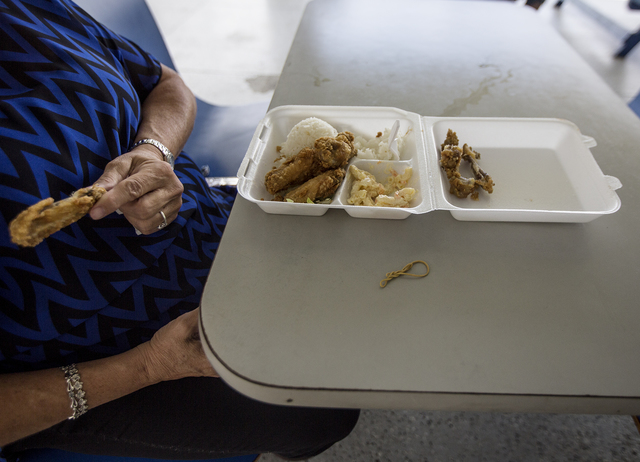In June, the County Council defeated a bill that would have restricted the use of expanded polystyrene products, more commonly referred to as Styrofoam, throughout Hawaii Island’s food industry. ADVERTISING In June, the County Council defeated a bill that would
In June, the County Council defeated a bill that would have restricted the use of expanded polystyrene products, more commonly referred to as Styrofoam, throughout Hawaii Island’s food industry.
But proponents of the legislation aren’t ready to put the issue to bed.
Bill 140, sponsored by Kohala Councilwoman Margaret Wille, would have prohibited any food service provider on the island from using polystyrene in disposable food packaging. They would have instead been required to use reusable or compostable products, save for a few exemptions.
The bill stalled after a 4-4 vote. But Wille, who was narrowly ousted from her District 9 seat in August’s primary, will propose a modified version of the bill this week as one of her final legislative acts. She described the bill as “140 light.”
“The big difference is that the prohibitions in Bill 140 were sort of across the board, but this bill only prohibits the county, county vendors and county facility users (from using foam containers),” Wille said. “If we think this is important, then we should act as an example.”
Community organizations that support Wille’s endeavor have taken those words to heart. Such is evidenced by a shift in their grassroots strategy toward a focus on several Big Island businesses that took it upon themselves to enact a foam-free policy within their establishments.
The Hawaii Wildlife Fund, the Surfrider Foundation and Sustainable Island Products compiled a list of 131 companies that fit this bill, so to speak. The list can be viewed at goo.gl/tia7Rd.
“We live on an island, and we need to be mindful about what we are bringing in and to consider how short the useful life cycle of these so called ‘single-use products’ really is compared to their long life in the environment,” wrote Megan Lamson, vice president of the Hawaii Wildlife Fund, in a joint press release. “EPS foam may take decades or even centuries to degrade. A compostable container, on the other hand, will break down — by definition — in 180 days.”
Hawaii Island will be equipped with such a composting facility by July of 2018.
Opposition arguments to Bill 140 were generally tinted with business concerns, particularly about an increase in price for food service providers and the negative implications for a polystyrene plant on Oahu, which employs in the neighborhood of 100 people.
Some opponents of the bill also shifted responsibility for negative environmental consequences from the businesses who offer foam containers to the consumers who don’t dispose of them properly.
Whether the changes to the failed Bill 140 will garner any change in opinion toward the new legislation remains to be seen.
Wille said her hope is the new, scaled-back approach can at least pick up some traction before the next council term, with four new members coming on, begins in December. If nothing else, she thinks her work propelled the conversation forward and brought the issue to the attention of island residents.
And there does appear to be significant community support.
Sarah Rafferty, the Rise Above Plastics coordinator with the Surfrider Foundation Kona, started a Change.org petition in October 2015 ban expanded polystyrene containers on the Big Island. One year later, the petition has been signed by more than 5,100 people.
“What message are we sending to our visitors and our keiki when we promote our island’s beauty and preach respect for the land, yet we are purchasing foam products from overseas to be shipped here and stuffed into our landfills after a moment’s use?” Rafferty wrote.
Email Max Dible at mdible@westhawaiitoday.com.



